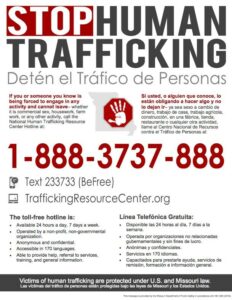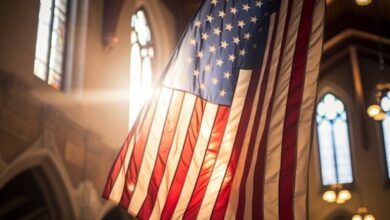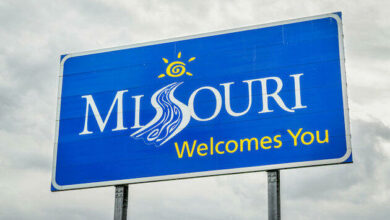Businesses use poster to join fight against human trafficking
You most likely didn’t know it, but Friday was dedicated to saving people from human trafficking. Though the day was observed as Human Trafficking Awareness Day, the entire month of January is actually dedicated to human trafficking awareness.
January is also Respect Life Month in the Pro-Life community. Focusing on valuing all life from the unborn to the aged and saving young women from sex trafficking.
“Whatever is alive is going to do whatever it has to to remain alive, and that’s just the facts,” said Kristy Childs, founder of Veronica’s Voice.
That’s the message advocates say the community must understand about people who have been sex trafficked or exploited.
READ THE METRO VOICE RESPECT LIFE SPECIAL SECTION
“We have an opportunity to create a collaborative path out for survivors, because many of the individuals who are doing what we might call ‘sex work’ are lacking opportunity, the education to seek other types of work,” Veronica’s Voice Executive Director Lucy Bloom said.
In 2018, Missouri approved House Bill 1246 to combat the scourge of human trafficking by requiring the placement of posters containing resources  to assist human trafficking victims in many public buildings throughout the state of Missouri. The bill tells certain businesses to put up an anti-sex trafficking poster before March 1. The poster lists the national hotline number and a number to text for anyone who is being trafficked or who has witnessed someone being trafficked.
to assist human trafficking victims in many public buildings throughout the state of Missouri. The bill tells certain businesses to put up an anti-sex trafficking poster before March 1. The poster lists the national hotline number and a number to text for anyone who is being trafficked or who has witnessed someone being trafficked.
If you would like to print the poster out at your business, click here to download a pdf.
According to the law, the Missouri Stop Human Trafficking poster should be displayed in a conspicuous place in or near the bathrooms or near the entrance of each of the following establishments:
- Hotels, motels, or other establishments that have been cited as a public nuisance for prostitution under Section 567.080 RSMo;
- Strip clubs or other sexually oriented businesses;
- Airports;
- Train stations that serve passengers;
- Emergency rooms within general acute care hospitals;
- Urgent care centers;
- Privately operated job recruitment centers;
- Businesses or establishments that offer massage or body work services for compensation;
- Women’s health centers;
- Bus stations; and
- Privately owned and operated facilities that provide food, fuel, shower or other sanitary facilities and overnight parking.
If a business doesn’t comply, it will get a written warning and could receive further violations. The Missouri State Highway Patrol will enforce this law.
“We really have to come together and give a broader voice. So I’m hoping that businesses will see this story and they will know there’s a poster they can download,” Bloom said.
The few businesses 41 Action News visited that fall under one of the categories did not have the posters up and were not aware of the initiative.
Veronica’s Voice officials said awareness and understanding about commercially sexualized exploitation is increasing, but people aren’t doing enough to help victims, predominantly women, live a supported life going forward.
“We just need to stop criminalizing this population. That would be the biggest and best step we could take,” Childs said.
Childs said since 2000, she’s noticed a lot of women who come to her for help are also developmentally disabled.
“And these women, a lot of them, were court-ordered to our program and I’m thinking, one, I don’t think we should criminalize prostituted individuals in the first place. But the fact that we’re criminalizing people who are operating not on a normal functioning level was just eye-opening but devastating to me, because in my years I never saw that,” Childs said.
Childs herself survived 26 years as a victim of sex trafficking.
Most women Veronica’s Voice helps are suffering from post-traumatic stress disorder and depression.
However, women and youth who have cognitive disabilities are preyed on more. From January 2015 to December 2017, the National Human Trafficking Hotline took calls from 2,116 potential victims who had a health concern or disability immediately before being sex trafficked.
Childs and Bloom said predators will “recruit” outside day centers for developmentally disabled people or rehab centers because they know those people are more vulnerable.






